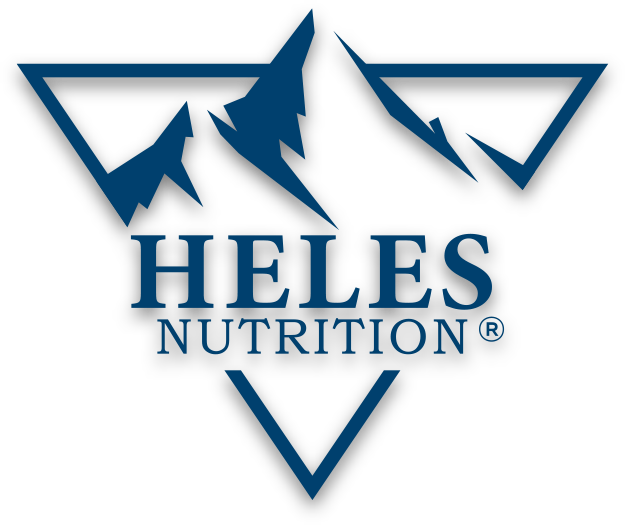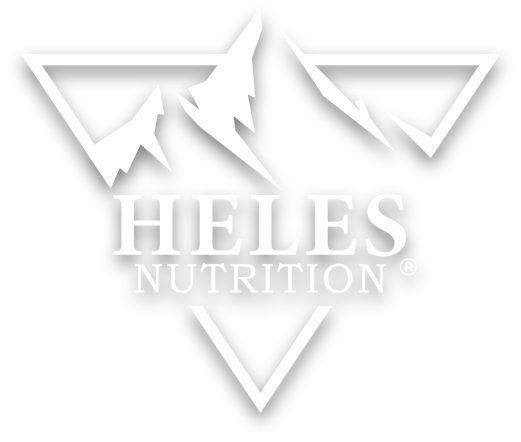
The role of collagen in the body
What is collagen?
Collagen is the most abundant structural protein in our body. It is the main component of skin, bones, cartilage, and tendons. Our hair, muscles, and vital organs are also formed by collagen.
The share of collagen is from 25% to 35% of the total amount of proteins in the whole body, and in the skin, its content reaches 70%. For this reason, the beauty of the skin largely depends on the health and proper functioning of collagen fibers, which are responsible for the synthesis of renewed dermal cells. The human body is capable of producing at least 28 different types of collagen, two of which are key to skin health. These are collagen types 1 and 3, both of which are present in Heles Nutrition® Collagen Peptides.
Like glue (from the Greek kolla – glue), this important protein sticks together all the cells and tissues of our body into a single organism. And it is thanks to this property of collagen that the skin has elasticity, the hair and nails are strong, and the joints have normal mobility.
What happens with age?
With age, the activity of cells that produce collagen – fibroblasts, gradually decreases, and collagen synthesis decreases. This process begins at the age of 25, and by the age of 40–45, its production is reduced by almost two times.
The body continuously undergoes the processes of the formation of new collagen and the destruction of old collagen. However, due to the imbalance of production and degeneration, our body is not able to replace collagen at the rate at which it breaks down. This imbalance leads to a loss of firmness and elasticity of the skin, deterioration of hair, nails, muscles, and pain in the joints. The appearance of cellulite is also associated with a lack of collagen.
As a result of the degradation of collagen fibers, microcirculation worsens and the process of skin nutrition is disturbed, which leads to a deterioration in its color. In the absence of tone, mimic muscles are no longer able to provide clear lines in the oval of the face; the corners of the lips are lowered. The formation of nasolabial folds and the drooping of the upper eyelid are also causes of weakness in facial muscles and a decrease in skin elasticity.
Changes in collagen production occur not only in the skin but also in tendons, muscles, and joints, which leads to a change in their functioning. Thus, age-related transformations occur—the appearance of a person, figure, and gait change.
It is against the background of collagen deficiency that its important role in the body becomes clearly visible. In addition to the natural process of reducing the synthesis of collagen in the body, there are external factors that disrupt its production. These include:
- unbalanced diet, including excessive sugar intake and insufficient protein intake;
- prolonged exposure to the sun;
- cigarette smoke;
- frequent stress;
- lack of sleep.
How do I support collagen production?
The process of collagen synthesis must be restored from the inside, since cosmetology gives only an external transformation. And first of all, experts advise paying attention to your diet. Nutrition should be balanced; it should contain, on an ongoing basis:
- bone broth (the richest source of amino acids and nutrients);
- white chicken meat;
- fatty fish, as well as seafood;
- chicken and quail eggs;
- berries (a rich source of antioxidants) and citrus fruits;
- leafy green vegetables.
However, for various reasons, a sufficient amount of essential nutrients, such as amino acids, is not always supplied to the body with food and can be absorbed. In this case, the deficiency of amino acids allows you to make up for it with the intake of quality collagen-based supplements.
In cosmetology, collagen has long been used as an external agent. However, today’s oral intake of collagen peptides, which can support our body from the inside, is especially relevant. And it is this approach to supporting the body that can be considered reasonable and fundamental.
The composition of collagen peptides includes a unique active tripeptide, glycine-histidine-lysine, which has a direct stimulating effect on the regeneration of skin cells, cartilage, and bones and also contributes to the restoration of connective tissues. It is a rich set of amino acids, including essential ones, that is the basis for creating new collagen in the body. Thus, the synthesis and renewal of collagen are launched.
The synthesis of collagen is a complex enzymatic, multi-stage process that is provided by vitamins and minerals. A sufficient level of vitamin C supports the hydroxylation process, which has a positive effect on the subsequent stages of collagen synthesis.
It is important to understand that skin and hair improvement does not happen overnight. As a rule, collagen is primarily absorbed where it is needed most, for example, in the joints. It reaches the skin, hair, and nails according to the residual principle. Therefore, in order to achieve positive and sustainable results, it is often necessary to increase the duration of the course or repeat it after a while. The intake of collagen peptides should be systemic and regular.
Based on this knowledge, we offer you a unique product that has recently justifiably gained immense popularity among people who care about health and beauty.
Heles Nutrition® Collagen Peptides
Our product consists of one simple ingredient, high-quality Beef Collagen Peptides and contains absolutely no additional additives.
The recommended daily serving of 10 grams of Heles Nutrition® Collagen Peptides (1 scoop) contains 10 grams of bioactive Collagen Peptides Types 1 and 3 and 18 amino acids, including 8 essential amino acids.
Due to its ideal composition and purity, it has a neutral taste, dissolves easily, and can be added to water, coffee, yoghurts, smoothies, fruit juices, or other favourite drinks and dishes.
Using Heles Nutrition® Collagen Peptides is an easy way to add Collagen to your daily diet and therefore provide invaluable support for the health of your skin, hair, nails, and joints.
More information about the positive impact of Collagen Peptides on our bodies can be found in the Learn section.


